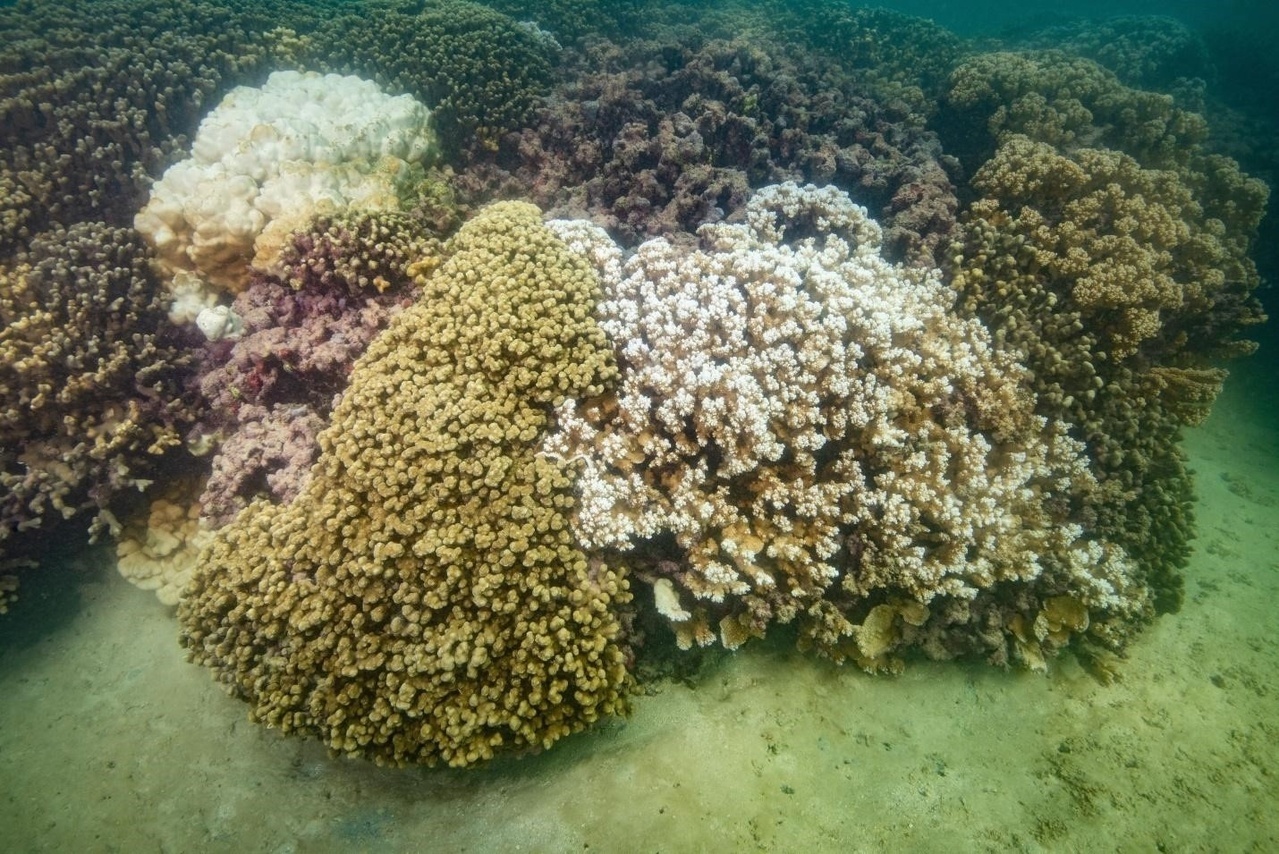Sunscreen, as many people know it, is a useful tool that keeps us from burning under the sun’s harsh UV rays, but as of recent years, sunscreen has been suspected to be a silent killer for creatures below the crashing waves of our oceans. Scientific studies over the last two decades have shown that certain chemical UV filters used in many sunscreens, oxybenzone and octinoxate, can damage corals at very low concentrations. Research has found that these chemicals can disrupt coral DNA, interfere with normal growth and development, and increase the likelihood of bleaching. These findings led several places, like Hawaiʻi, to restrict sunscreens containing these compounds. In areas with heavy tourism, sunscreen chemicals can accumulate in shallow waters and create local stress for corals.

Sunscreen, although it does play a factor of causing coral disturbances, is a local stressor, not a global one. The major drivers of coral decline worldwide are far larger and more severe. Ocean warming caused by climate change is the leading cause of mass bleaching events, which can kill huge areas of reefs in a short time. Ocean acidification also is a driver that reduces corals’ ability to build their skeletons. Pollution, coastal development, overfishing, and sedimentation further weaken reefs, making it harder for them to recover from bleaching or disease.
Compared to these major threats, sunscreen plays a much smaller role. It can worsen conditions for corals in high-use tourist areas, like Hawai’i, but it is not the primary reason reefs are disappearing on a global scale. Overall, it is still important that managing smaller stressors is valuable, especially in reefs that are already under pressure. Reducing sunscreen pollution is one action that individuals and communities can do to limit our negative impacts on coral reefs. Using reef-safe mineral sunscreens that contain non-nano zinc oxide or titanium dioxide is one option and also wearing protective clothing, such as rash guards, can reduce the need for sunscreen altogether. For regions with heavy tourism, adopting policies that limit harmful sunscreen ingredients can help create healthier conditions for nearby reefs.

Overall, sunscreen is not a major global driver of coral decline, but it is an impactful local stressor that can contribute to coral stress in certain areas. Addressing this issue is important, but it must be paired with other efforts to combat climate change, reduce pollution, and manage coastal environments responsibly. Coral reefs face many challenges, and solving the most serious ones will require coordinated global action. By taking steps both large and small, we can help protect these valuable ecosystems for the future.
Featured Image: Coral bleaching from Hawaiian Islands (2019). Image from: NOAA
